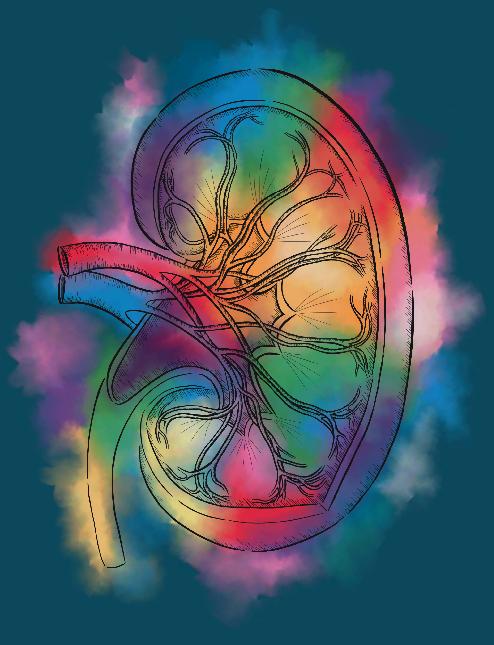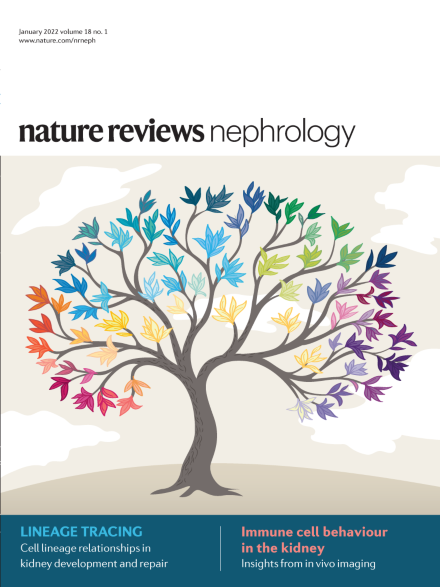性激素治疗对肾功能的影响
IF 39.8
1区 医学
Q1 UROLOGY & NEPHROLOGY
引用次数: 0
摘要
慢性肾脏疾病(CKD)在顺性男性中的进展通常比顺性女性快,提示女性性别有保护作用。一项对44名开始女性化(雌二醇和抗雄激素)或男性化(睾酮)激素治疗的变性人的观察性研究为性激素对肾脏的影响提供了新的见解。研究人员Sarah van Eeghen说:“这个群体提供了一个独特的机会来研究性激素浓度明确变化的影响。”性激素治疗也导致小管损伤生物标志物浓度的变化,女性化治疗降低尿NGAL、MCP1和YKL-40,男性化治疗增加尿YKL-40和血浆TNFR1。“这些结果表明雌二醇可以预防早期肾小管损伤和炎症,而睾酮可能会促进肾脏炎症,”van Eeghen评论道。此外,血浆蛋白质组学分析确定了几种具有肾脏保护特性的循环蛋白,在女性化治疗期间增加和/或在男性化治疗期间减少。其中许多蛋白质与雌二醇呈正相关,与睾酮呈负相关,包括与内皮功能、炎症调节和肾脏结构完整性保护有关的蛋白质。本文章由计算机程序翻译,如有差异,请以英文原文为准。

The effects of sex hormone therapy on kidney function
求助全文
通过发布文献求助,成功后即可免费获取论文全文。
去求助
来源期刊

Nature Reviews Nephrology
医学-泌尿学与肾脏学
CiteScore
39.00
自引率
1.20%
发文量
127
审稿时长
6-12 weeks
期刊介绍:
Nature Reviews Nephrology aims to be the premier source of reviews and commentaries for the scientific communities it serves.
It strives to publish authoritative, accessible articles.
Articles are enhanced with clearly understandable figures, tables, and other display items.
Nature Reviews Nephrology publishes Research Highlights, News & Views, Comments, Reviews, Perspectives, and Consensus Statements.
The content is relevant to nephrologists and basic science researchers.
The broad scope of the journal ensures that the work reaches the widest possible audience.
 求助内容:
求助内容: 应助结果提醒方式:
应助结果提醒方式:


